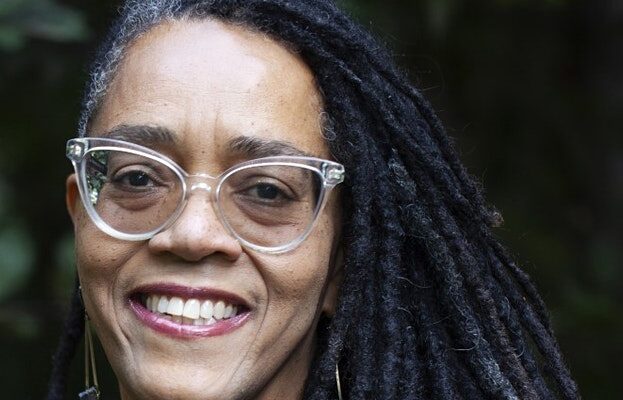
Author Francesca T. Royster
Photo: Courtesy UT Press
For country music and its fans, the last several years have seen the genre reckon, to varying degrees of success, with racism and sexism. If it seems like there’s a shift — a great demand for accountability — toward country music becoming a more inclusive, thoughtful and diverse art form, author Francesca T. Royster agrees.
“I think [awareness is] coming from the artists themselves,” Royster said during a recent conversation. “There’s a kind of self-consciousness and awareness on the part of some Black country artists to really name injustices and some people who are also drawing from looking backwards, and using their music to look backwards.”
Such insights are the foundation of her fascinating new book, “Black Country Music: Listening for Revolutions,” out now via the University of Texas Press as part of its American Music Series.
Billed as the “first book on Black country music by a Black writer,” Royster, a professor of English at DePaul University in Chicago and author of “Sounding Like a No-No: Queer Sounds and Eccentric Acts in a Post-Soul Era,” explores how racism can feel endemic in country music, but also how the genre, through its artists and its fans, is fighting to transcend its shortcomings.
Royster cites the late Texas legend Charley Pride as an example of a Black country artist whose career — four Grammys, three American Music Awards, an induction into the Country Music Hall of Fame and multiple top 10 singles — masked the ugliness with which he had to contend off-stage.
“For such a long time, in terms of African Americans and country music, there’s often been room for one star to make their way, and to keep that place, they have to be silent about the struggles they’ve gone through,” Royster said. “When the market is opened up more, and some of this, I think, is on the part of the fans, there’s less of a sense of precarity for those artists who are able to make it a little higher.”
Hence how Arlington-bred Mickey Guyton, Rissi Palmer, Rihannon Giddens, Yola and many other Black artists are able to find a foothold and gain substantial audiences in 21st century Nashville — even as performers like Morgan Wallen, whose ascendant career was briefly, but not permanently, derailed by his usage of racist language, build their own sizable fanbases. Royster argues the progress, incremental as it might seem, is nonetheless important.
“I think that country music is so powerful in its ability to tell personal and important stories,” Royster said. “So if the book can get people to question ‘Oh, who’s not here in the room, like who’s not being heard? Who’s not up on this stage?’ … just trying to listen and think about how this genre is much more complex and beautiful because of the presence of Black artists.”
Preston Jones is a North Texas freelance writer and regular contributor to KXT. Email him at [email protected] or find him on Twitter (@prestonjones). Our work is made possible by our generous, music-loving members. If you like how we lift up local music, consider becoming a KXT sustaining member right here.






